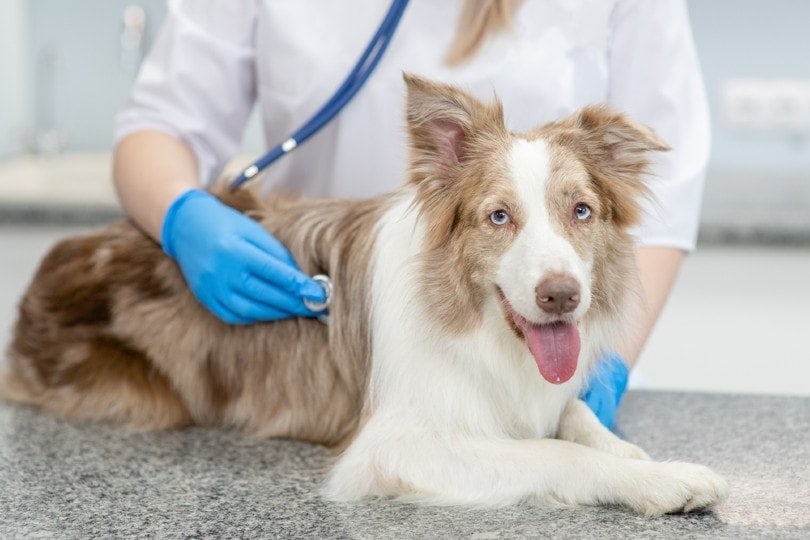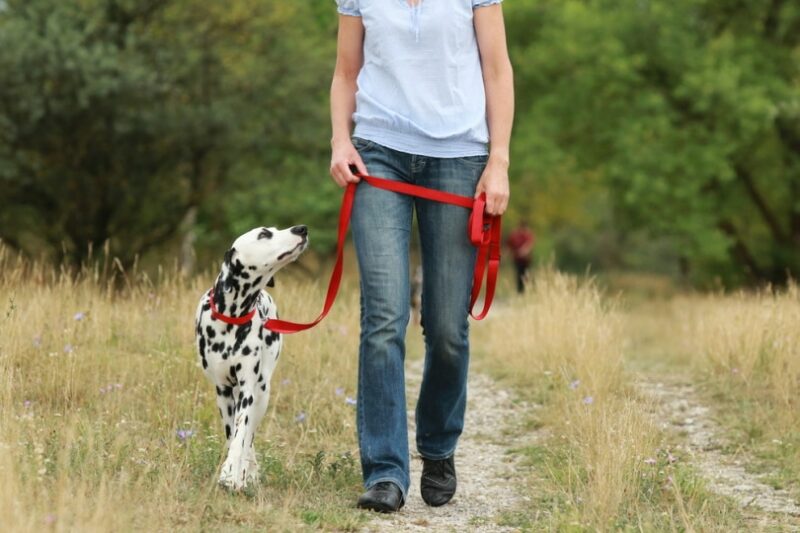How Long Do Australian Shepherds Live? Average Lifespan, Data & Care
Updated on

All dog owners agree that in an ideal world, our pups would live at least as long as we do. But sadly, just as we welcome our best four-legged friend into our home, we must prepare for having to say goodbye to him one day. Although it is impossible to predict when that sad day will come, we can do whatever it takes to ensure that our wonderful friend has a long, healthy, and happy life.
In addition, there are breeds of dogs whose good genetics prevent frequent health problems and give them a longer life expectancy. If you are reading this article, it is probably because you wonder if the splendid Australian Shepherd is one of those lucky canines.
So, how long do Australian Shepherds live on average? According to PetMD, these magnificent beasts live between 12 and 15 years, which is about the average for dogs of this size. Let’s see which health issues are common to the breed and what you can do to help your Aussie live a long and beautiful life by your side.
Australian Shepherd Overview
The Australian Shepherd is an intelligent working dog with a strong herding instinct. As an excellent companion dog, he is naturally kind, loyal, playful, and affectionate. He is also a friendly dog who loves to play with children and gets along well with other pets. However, when left alone and locked up, the Aussie will be unhappy and can behave destructively.
The Australian is often referred to as a Velcro dog. Since they’re always eager to please, they learn quickly and are easy to train. This sensitive dog is also a great athlete. He needs a lot of physical activity to be happy. As a result, he will need an owner who is just as active as him and can accompany him in various activities, such as agility and obedience classes, bike rides, Frisbee sessions, hikes in the mountains, and many others.

What Are Common Health Problems for the Australian Shepherd?
There are health issues that can affect the Australian Shepherd, and the most common minor in this breed are:
- Collie’s Eye Anomaly (CEA)
- Progressive retinal atrophy (PRA)
- Lumbosacral syndrome
- Von Willebrand’s Disease (vWD)
- Patent ductus arteriosus (PDA)
- Persistent Pupillary Membrane (PPM)
- Hypothyroidism
- Pelger-Huet syndrome
- Hip dysplasia
Note: The Australian Shepherd is particularly prone to hip dysplasia and eye defects. So, before buying your puppy, ask your breeder to see the parents’ X-rays and screening tests; if they present these problems, your puppy will also have a good chance of suffering from them. This goes for all the other health problems mentioned in the list above.
What Do Australian Shepherds Usually Die From?

The common health problems mentioned above can be severe but won’t necessarily kill your Australian Shepherd, especially if treated promptly.
- Cancers: There are canine cancers that can shorten the life expectancy of an Australian Shepherd. Hemangiosarcoma and lymphoma are the most common. The first affects the immune system, and the second involves the organs. Both lead to premature death if the cancer is not diagnosed and treated in advance. Your veterinarian will make the diagnosis and the treatment plan. The suggested treatment may be chemotherapy, which may help extend your Aussie’s life expectancy.
- Epilepsy: An Australian Shepherd can suffer from epilepsy. Three forms are possible, including the primary form, the secondary form, and the reaction form. All of them can shorten the life expectancy of your Australian Shepherd. Epilepsy can be caused by a blood problem, an issue with the brain, or a problem with the dog’s diet. The seizures can be temporary but can also get worse and sometimes cause the death of the Aussie. The only solution is to see a veterinarian at the first sign of epilepsy for prompt treatment.
- A genetic abnormality in the MDR1 gene: Of all the diseases that can affect dogs and shorten the life expectancy of the Australian Shepherd, MDR1 may be the most serious. It causes the death of several dogs each year. is a disease caused by a genetic mutation. The mutation is caused by sensitivity to various drugs. To know which medications are unsuitable for an Australian Shepherd, you must consult your veterinarian.
How to Help Your Australian Shepherd Live Longer
To keep your Aussie healthy and ensure a long life, there are several things you can do. First of all, you need to feed him well. Then, you need to ensure he gets enough physical exercise and receives the proper veterinary care.
Feed Your Australian Shepherd Well
Feeding an Aussie well requires giving him all the essential nutrients to thrive. Plus, the Australian Shepherd is a dynamic and active dog; he will burn a lot of energy. So, to help him stay active and healthy, you must provide your dog with a balanced diet of protein, fat, and carbohydrates.
To make sure you are buying the correct option from the plethora of dog food on the market, get in the habit of reading labels. The guaranteed analysis is a good indication of the content of the kibble or wet food you buy.
Don’t rely on packaging claims or premium labels: expensive kibble doesn’t necessarily mean superior quality. Instead, look for the Association of American Feed Control Officials (AAFCO) seal, which sets standards for animal feed and pet food quality and safety in the United States. So, if the food you want to buy meets the Dog Food Nutrient Profiles standards published by AAFCO, that’s a good sign.
Of course, you must think of other elements, such as essential vitamins and minerals. In addition, the components of an Australian Shepherd’s diet depend on several criteria, such as age, weight, activity level, etc. Therefore, before selecting a brand, you should seek advice from your veterinarian.
Finally, your dog’s food is not just about nutrients but also about quantity. The choice of how much to serve also depends on several factors, such as the weight and age of the Australian Shepherd. If your dog is overfed and does not exercise enough, he is at risk of becoming obese, which will limit his life expectancy.

Give Your Australian Shepherd All The Exercise He Needs
To prolong the life expectancy of an Aussie, he needs physical exercise. Without it, he will lose his vitality, which could lead to depression, behavioral problems, obesity, and other health issues.
Although he is a tough and dynamic dog, you should not lead him to total exhaustion. Thus, walking should not exceed 2 hours, even less when it is too hot outside. Besides, your veterinarian may recommend other types of exercise, depending on his health. For example, if he has hip dysplasia, a daily run of one hour is certainly not appropriate.
Make Your Vet Your Best Friend
It is true that regular consultations and check-ups at the vet do not come cheap; however, it is one of the best ways to make sure your dog gets all the care they need. Vaccine boosters, antiparasitic treatments, annual examinations, X-rays, blood tests, and others help detect and treat diseases that could reduce your Australian Shepherd’s quality and life expectancy.
Additionally, in order to reduce the hefty bills for severe illnesses like cancer, you should consider purchasing pet life insurance. It will save you from having to make a heartbreaking decision if you cannot afford expensive treatments for serious illnesses.

Final Thoughts on the Australian Shepherd Lifespan
When you adopt an Australian Shepherd, you get a loyal, gentle, caring, and active companion. An Aussie will quickly become your best friend and a valued member of the whole family. However, like all canines, the Australian Shepherd has his limits, and he is unfortunately not immortal.
When the day comes to part with this wonderful animal, we tear our hearts out so much that we cannot imagine the house without him. However, you can provide him with all the care he needs to live a long and healthy life and, most importantly, to enjoy every second spent with your best friend.
Featured Image Credit: Eve Photography, Shutterstock













